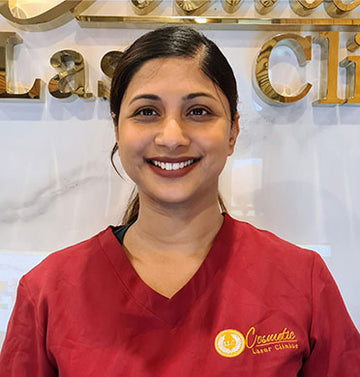The Science and Safety Behind HIFU Skin Tightening: A Closer Look at High-Intensity Focused Ultrasound
As a non-invasive replacement for invasive surgical facelifts, HIFU skin tightening is gaining favour. This article delves into the research behind HIFU technology as well as its potential risks. We discuss how the ultrasonic waves cause collagen remodelling and skin tightening by precisely targeting deep layers of skin without hurting the surface.
Concerns concerning HIFU's safety are addressed as well, with an emphasis placed on selecting a competent physician and following all aftercare instructions. Readers will be better able to make judgements regarding their skin-tightening journey if they have a firm grasp on the science and safety of HIFU.
What Is HIFU Skin Tightening?
HIFU skin tightening is a cutting-edge cosmetic procedure that uses high-intensity focused ultrasound waves to improve the appearance of sagging skin and wrinkles. This non-invasive treatment has become a popular alternative to traditional facelifts due to its many benefits, including minimal downtime, long-lasting results, and no need for anaesthesia.
So how does HIFU technology work, and is it safe? Let's take a closer look at the science and safety behind this innovative treatment.
The Science Behind HIFU Skin Tightening
HIFU technology works by delivering high-frequency ultrasound waves deep into the skin's layers, targeting specific tissues and causing them to heat up. This heating effect triggers a natural response in the body, stimulating the production of new collagen and tightening the skin.
The ultrasound waves used in HIFU are focused on specific points within the skin, allowing for precise targeting of problem areas. The procedure is typically performed using a handheld device that delivers the ultrasound waves in short bursts.

One of the key advantages of HIFU technology is that it can target deeper layers of the skin than many other non-invasive treatments. This means it can effectively address concerns such as sagging skin on the neck, chin, and brow line.
Another benefit of HIFU is that it is a relatively quick procedure, with most sessions lasting between 30 minutes to an hour. Patients can typically return to their normal activities immediately after the treatment, with no need for downtime or recovery.
The Safety of HIFU Skin Tightening
One of the most significant advantages of HIFU skin tightening is its safety profile. Unlike traditional facelifts, which involve invasive surgery and anaesthesia, HIFU is a non-invasive treatment that carries minimal risk.
However, as with any cosmetic procedure, there are still some potential risks and side effects to consider. These can include mild swelling, redness, or tenderness in the treated area. In rare cases, patients may experience more severe side effects such as burns or nerve damage, but these are typically associated with inexperienced practitioners or improper use of the HIFU device.
To ensure the safety and effectiveness of HIFU skin tightening, it is essential to choose a qualified practitioner who has experience performing the procedure. Patients should also be aware of the importance of proper aftercare, such as avoiding sun exposure and following any post-treatment instructions provided by the practitioner.
Final Thoughts
HIFU skin tightening is a safe and effective non-surgical alternative to traditional facelifts, offering patients a way to rejuvenate their appearance without undergoing invasive surgery. By understanding the science and safety behind HIFU technology, patients can make informed decisions about their cosmetic treatments and achieve the best possible results. With the right practitioner and proper aftercare, HIFU skin tightening can help patients achieve a more youthful and vibrant appearance.
If you are looking for a trustworthy cosmetic laser clinic in Brisbane, then look no further than LLC Cosmetic. LLC Cosmetic is Brisbane’s premiere laser clinic specialist for hair removal and advanced laser skin treatments.
Please call us today for a consultation on 07 3092 1378 or leave an enquiry.






